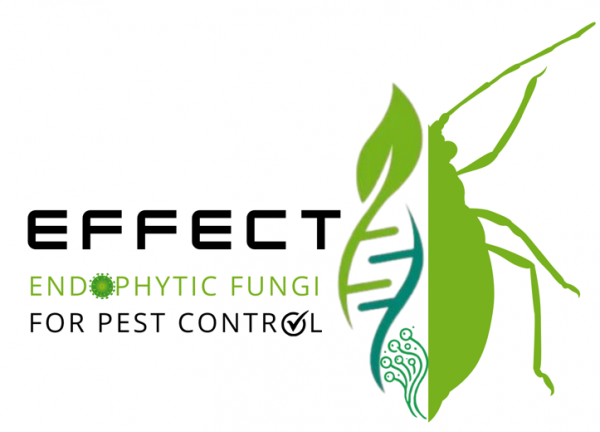
Horizon Europe Effect Project: Endophytic fungi for pest control
- Type Project
- Status Signed
- Execution 2024 -2026
- Assigned Budget 181.152,96 €
- Scope Europeo
- Main source of financing Horizon Europe 2021-2027
- Project website EFFECT
The proposed EFFECT research project derives its originality from the fact that global environmental, social, and economic demands tend to direct agriculture toward healthier and more resilient production systems, considering crop sustainability.
Supported by the Marie Sklodowska-Curie Actions programme, the EFFECT project aims to explore the relationship between crop plants and entomopathogenic fungal endophytes (EFEs) and the impact of EFE on their response to biotic, pest and disease, and abiotic stresses such as water, heat, nutrition, and other factors.
The ultimate goal is to reveal the effectiveness of these fungal biocontrol agents, providing a viable, innovative, and feasible alternative to chemical pesticides, thereby aligning with several global sustainable development goals that seek to achieve a better, healthier, and more sustainable future for humanity.
Plant protection products are an important component of modern agriculture and contribute to substantially increased yields and crop protection. Their accumulation in the environment poses risks to humans and other living organisms, with the dramatic development of pesticide resistance among targeted pests and diseases.
Therefore, growing global ecological and economic demands are tending to direct agriculture toward healthier production systems that consider crop sustainability, the environment, and human health. Entomopathogenic fungi (EPFs) are considered an environmentally friendly alternative to pesticides thanks to several advantages, including their specificity of action, absence of toxic residues, and their spectacular genetic resilience. Recently, additional interesting characteristics have been attributed to entomopathogenic endophytes for plant protection and production.
However, published data are variable and fail to accurately predict their bioecological functions. Therefore, through a novel integrated research program, EFFECT will use cutting-edge experiments and analysis to unravel and assess the additional ecological functions of EPF in plant structure related to systematic endophytic development and pest survival that underpin feedback mechanisms between the plant and its ecosystem. The ultimate goal is to increase the efficacy of these biocontrol microagents to achieve an innovative and viable replacement for chemical insecticides.
In addition to the potential target audience for scientific research, the project could offer potential solutions for industrialists and farmers to combat many pests and diseases, while benefiting from ecological considerations to reduce the release of chemicals into the environment. Consequently, EFFECT combines multidisciplinary approaches to innovatively achieve objectives that are timely and in line with current European and global research trends, with positive results that will be achievable and measurable at different levels.
- UNIVERSIDAD DE CORDOBA (UCO)







